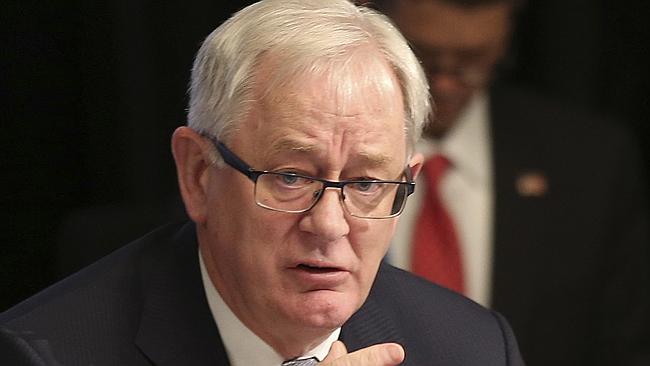Government pessimistic over bigger Trans-Pacific Partnership

News.com.au | 17 June 2014
Government pessimistic over bigger Trans-Pacific Partnership
MALCOLM FARR
THE Australian Government is close to admitting defeat on the Trans-Pacific Partnership — the massive and controversial trade deal aimed at uniting 40 per cent of the global economy.
“Look, it’s getting ... it’s getting quite problematic in the United States,” Trade Minister Andrew Robb said today, referring to a Democrats’ revolt against President Barak Obama on the issue.
He said the negotiators were just a week away from settling the agreement but the TPP needed the backing of the US President to survive. And US House of Representatives was stalling.
Mr Robb told ABC radio: “If it’s not dealt with in the next two or three weeks I think it’s … we’ve got a real problem with the future of the TPP.”
Congress last week refused to give President Obama the power to fast track the deal and his own Democrats were among the TPP’s opponents.
It has been under attack on both sides of the Pacific for the secrecy of its provisions, with Wikileaks earlier this month offering a $100,000 reward for the leaking of the deal’s contents.
And there have been concerns about its section on Investor State Disputes Provisions. It is feared the ISDS will give giant corporations the power to override the laws of a country if they are claimed to be hurting business.
One possible example posed is Australia’s plain packaging laws on cigarettes.
Mr Robb has said Australia already has ISDS agreements with 28 countries with no major problems.
He was celebrating the closure of a lucrative trade agreement with China, 10 years in the negotiating and the third important pact following agreements with Japan and South Korea.
But the even bigger TPP appeared to be slipping away from achievement.
“We are literally one week of negotiation away from completing this extraordinary deal and across 12 countries and 40 per cent of the world’s GDP,” Mr Robb said.
“But the US Congress — as it has sometimes before — caused a problem. You can see the political heat’s rising by the day over there because of the presidential election next year. So I don’t think anyone can call it.”
The minister said there was some comfort the deal had passed the US Senate.
“But now it’s before the House, it’s facing a number of barriers and I don’t think anyone really knows where it’s going to finish up,” he said.





